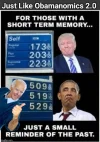Old_Trapper70
Well-Known Member
- Joined
- Dec 17, 2014
- Messages
- 2,383
Quite simply it is because they view themselves as victims of the left, have been taught to hate government, and they want to believe in the con artist:
https://pe.linkedin.com/pulse/curious-magic-con-artistand-why-we-fall-every-time-maria-konnikova
"In the 1950s, the linguist David Maurer began to delve more deeply into the world of confidence men than any had before him. He called them, simply, “aristocrats of crime.” Hard crime—outright theft or burglary, violence, threats—is not what the confidence artist is about. The confidence game—the con—is an exercise in soft skills. Trust, sympathy, persuasion. The true con artist doesn’t force us to do anything; he makes us complicit in our own undoing. He doesn’t steal. We give. He doesn’t have to threaten us. We supply the story ourselves. We believe because we want to, not because anyone made us. And so we offer up whatever they want—money, reputation, trust, fame, legitimacy, support—and we don’t realize what is happening until it is too late. Our need to believe, to embrace things that explain our world, is as pervasive as it is strong. Given the right cues, we’re willing to go along with just about anything and put our confidence in just about anyone. Conspiracy theories, supernatural phenomena, psychics: we have a seemingly bottomless capacity for credulity. Or, as one psychologist put it, “Gullibility may be deeply engrained in the human behavioral repertoire.” For our minds are built for stories. We crave them, and, when there aren’t ready ones available, we create them. Stories about our origins. Our purpose. The reasons the world is the way it is. Human beings don’t like to exist in a state of uncertainty or ambiguity. When something doesn’t make sense, we want to supply the missing link. When we don’t understand what or why or how something happened, we want to find the explanation. A confidence artist is only too happy to comply—and the well-crafted narrative is his absolute forte."
http://dailycaller.com/2016/08/04/confidence-game-author-maria-konnikova-trump-is-a-con-artist/
“What long cons rely on is that we’re emotional about the people we like, about the people we trust…we feel some sort of emotional connection and we dismiss red flags…because the moment where we’re emotionally invested, we are no longer logical, we are no longer looking objectively, we are subjective…and so you dismiss the evidence.”
Konnikova believes that this is exactly what is happening to those traveling with tickets on the Trump Train. Victims of con artists tend to be emotionally vulnerable because they are experiencing moments of change and transition—much like the shifting landscape of America that is happening now.
“If you look at the types of people to whom Trump appeals, they are typical victims…He found his marks and he is actually reeling them in the way a very good con artist would,” Konnikova declared.
“Once you’re hooked, once the con artist has you…basically nothing anyone else can say can convince you are being conned because you become a true believer,” she said. “In order to acknowledge that you are being conned, you have to acknowledge that you are the type of person who could be conned, that you didn’t see it and that you have been taken along for a ride by a con artist.”
https://pe.linkedin.com/pulse/curious-magic-con-artistand-why-we-fall-every-time-maria-konnikova
"In the 1950s, the linguist David Maurer began to delve more deeply into the world of confidence men than any had before him. He called them, simply, “aristocrats of crime.” Hard crime—outright theft or burglary, violence, threats—is not what the confidence artist is about. The confidence game—the con—is an exercise in soft skills. Trust, sympathy, persuasion. The true con artist doesn’t force us to do anything; he makes us complicit in our own undoing. He doesn’t steal. We give. He doesn’t have to threaten us. We supply the story ourselves. We believe because we want to, not because anyone made us. And so we offer up whatever they want—money, reputation, trust, fame, legitimacy, support—and we don’t realize what is happening until it is too late. Our need to believe, to embrace things that explain our world, is as pervasive as it is strong. Given the right cues, we’re willing to go along with just about anything and put our confidence in just about anyone. Conspiracy theories, supernatural phenomena, psychics: we have a seemingly bottomless capacity for credulity. Or, as one psychologist put it, “Gullibility may be deeply engrained in the human behavioral repertoire.” For our minds are built for stories. We crave them, and, when there aren’t ready ones available, we create them. Stories about our origins. Our purpose. The reasons the world is the way it is. Human beings don’t like to exist in a state of uncertainty or ambiguity. When something doesn’t make sense, we want to supply the missing link. When we don’t understand what or why or how something happened, we want to find the explanation. A confidence artist is only too happy to comply—and the well-crafted narrative is his absolute forte."
http://dailycaller.com/2016/08/04/confidence-game-author-maria-konnikova-trump-is-a-con-artist/
“What long cons rely on is that we’re emotional about the people we like, about the people we trust…we feel some sort of emotional connection and we dismiss red flags…because the moment where we’re emotionally invested, we are no longer logical, we are no longer looking objectively, we are subjective…and so you dismiss the evidence.”
Konnikova believes that this is exactly what is happening to those traveling with tickets on the Trump Train. Victims of con artists tend to be emotionally vulnerable because they are experiencing moments of change and transition—much like the shifting landscape of America that is happening now.
“If you look at the types of people to whom Trump appeals, they are typical victims…He found his marks and he is actually reeling them in the way a very good con artist would,” Konnikova declared.
“Once you’re hooked, once the con artist has you…basically nothing anyone else can say can convince you are being conned because you become a true believer,” she said. “In order to acknowledge that you are being conned, you have to acknowledge that you are the type of person who could be conned, that you didn’t see it and that you have been taken along for a ride by a con artist.”


